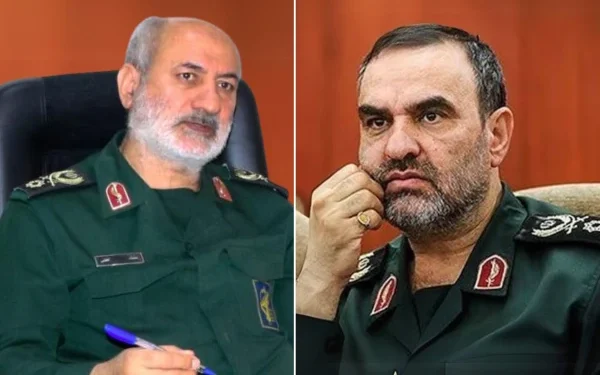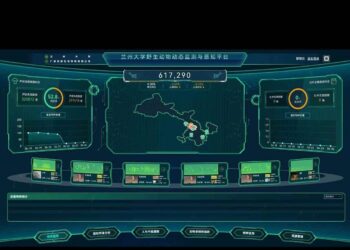In a shocking escalation of hostilities in the Middle East, a high-profile Israeli airstrike on Tehran has resulted in the martyrdom of three senior Iranian military officials, including the Intelligence Chief and Deputy Chief of Iran’s elite Islamic Revolutionary Guard Corps (IRGC). The attack, confirmed by Iranian state media, has heightened tensions in an already volatile region and drawn sharp condemnation from Iran.
Key Figures Martyred in Israeli Airstrike
According to Iranian sources, the airstrike carried out by Israel on Sunday directly targeted key military personnel based in Tehran. Among those martyred were:
- General Mohammad Kazemi, Intelligence Chief of the IRGC
- General Hassan Mohaqiq, Deputy Intelligence Chief
- General Mohsen Baqeri, a senior commander within the IRGC
All three individuals held crucial positions within the military intelligence framework of Iran, and their deaths are seen as a significant loss for the Islamic Republic. The IRGC, in a strongly worded statement, confirmed the martyrdoms and vowed “relentless and targeted retaliation” against those responsible.
Who Was General Mohammad Kazemi?
General Mohammad Kazemi, who was appointed as the head of the IRGC Intelligence Branch in 2022, was a key figure in overseeing both internal and external intelligence operations for Iran. His role was vital in monitoring foreign threats, counter-intelligence activities, and the implementation of national security policies.
Prior to his appointment as Intelligence Chief, Kazemi was involved in counter-espionage and was known for playing a discreet but powerful role in shaping Iran’s security strategy. His leadership came at a time when Iran was facing mounting pressure from Western nations, cyberattacks, and covert operations allegedly carried out by foreign intelligence agencies, particularly Mossad.
Kazemi had replaced Hossein Taeb, who had served for over a decade, and was tasked with reforming and revitalizing the intelligence structure within the IRGC, ensuring tighter coordination between Iran’s intelligence services and military operations in conflict zones such as Syria, Iraq, and Lebanon.
General Hassan Mohaqiq: The Silent Strategist
General Hassan Mohaqiq, who served as Deputy Intelligence Chief, was also a veteran strategist within the IRGC. Although less publicly known than his superior, Mohaqiq was deeply involved in operations that extended beyond Iran’s borders, including intelligence coordination with Iran’s proxy forces in the Middle East.
His responsibilities included operational planning, information warfare, and logistical support for Iran-aligned militias in Lebanon, Syria, and Iraq. His loss is considered a serious blow to Iran’s strategic military planning and intelligence capabilities.
General Mohsen Baqeri: A Key Commander Also Killed
In addition to Kazemi and Mohaqiq, General Mohsen Baqeri, a senior commander in the IRGC known for his involvement in Syria and Lebanon, was also confirmed to have been martyred in the same strike. Baqeri played a major role in Iran’s overseas military operations and was seen as one of the key architects of Iran’s regional influence in the Levant.
Details of the Airstrike on Tehran
While full details are still emerging, initial reports suggest that the Israeli strike was a precision attack targeting a military intelligence facility located in Tehran. It is believed that sophisticated technology, possibly drones or long-range missiles, were used to carry out the strike with minimal collateral damage.
The fact that such high-ranking officials were present at the same location has raised questions about a potential intelligence breach or internal leak, a concern that Iranian authorities are now reportedly investigating.
The Iranian air defense system was reportedly caught off guard, leading to renewed debates over the preparedness of Tehran’s defense infrastructure and the possible penetration of Israeli intelligence within Iranian ranks.
Iran’s Reaction and Threat of Retaliation
Following the martyrdom of its senior officials, Iran issued a strongly worded statement through the IRGC, declaring the attack a direct assault on the country’s sovereignty and national security. The statement read:
“Israel and its Western backers must know that this act of terrorism will not go unanswered. Our response will be effective, targeted, and enduring—until Israel is wiped off the face of the map.”
Iranian President Ebrahim Raisi, in a televised speech, also condemned the strike and pledged that Iran’s retaliation would be “severe and unforgettable.”
Analysts warn that Iran may respond through indirect means, possibly via its regional allies, such as Hezbollah in Lebanon or militias in Iraq and Syria, potentially igniting a broader conflict across the region.
Implications for Regional Stability
This targeted killing of top Iranian intelligence officials marks one of the most serious escalations in the shadow war between Israel and Iran. Both countries have long accused each other of espionage, sabotage, and clandestine attacks, but a direct strike on Tehran is an unprecedented move.
Experts believe that this could trigger a new phase of the Iran-Israel conflict, shifting it from proxy confrontations to direct attacks on sovereign soil. Given the strategic importance of the IRGC and the individuals killed, Iran is unlikely to let this attack pass without a significant response.
Rising Tensions in the Middle East
This incident comes amid already rising tensions across the Middle East, with the war in Gaza, instability in Lebanon, Israeli airstrikes in Syria, and tensions in the Red Sea involving Iran-backed Houthi rebels in Yemen.
In recent months, Israel has ramped up operations against Iran-linked targets across the region, citing the need to prevent the Islamic Republic from establishing a military foothold near Israeli borders. Iran, on the other hand, views such actions as violations of international law and acts of war.
The international community, including the United Nations, has expressed concern over the growing instability and the risk of a full-scale regional war.
Global Reaction and Diplomatic Fallout
While Western nations have remained largely silent in the immediate aftermath, Russia and China, both allies of Iran, have condemned the attack. Russia’s foreign ministry called it a “reckless provocation” that could destabilize the entire Middle East.
China, which has sought to mediate peace between regional actors, urged both Israel and Iran to exercise restraint and resolve their disputes through diplomatic channels.
The United States, Israel’s primary ally, has not issued a formal statement but is expected to face pressure over its perceived role in supporting Israeli military actions.
Conclusion: What Happens Next?
The Israeli strike on Tehran and the resulting martyrdom of senior IRGC intelligence officials marks a dangerous turning point in Middle East geopolitics. Iran now stands at a critical juncture—whether to retaliate directly, escalate via proxy warfare, or respond through covert means.
One thing is certain: the martyrdom of Generals Kazemi, Mohaqiq, and Baqeri will not go unanswered. As regional powers brace for possible reprisals and the world watches closely, the coming days may redefine the strategic balance in the Middle East.

























